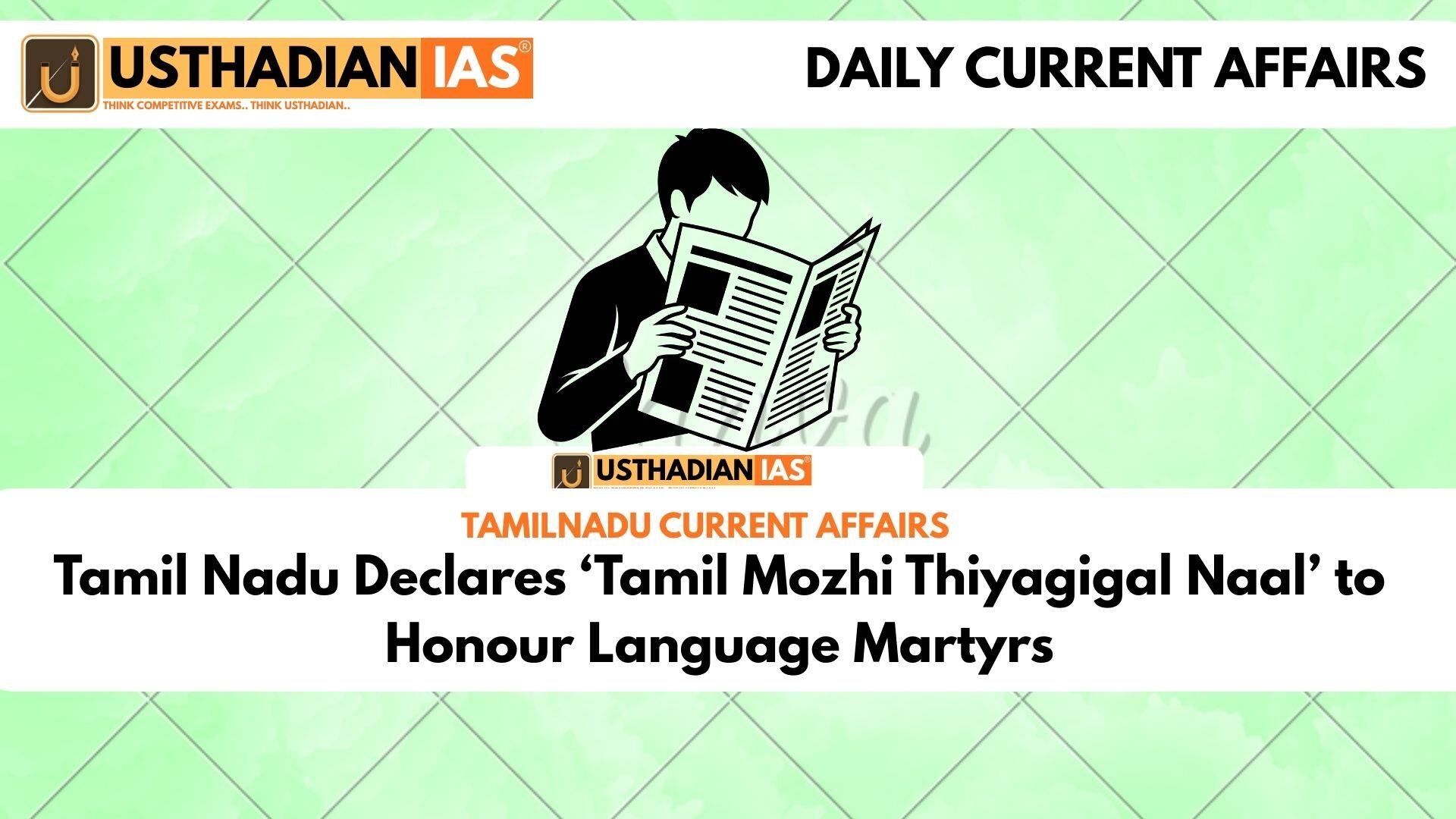Honouring the Sacrifice for Tamil
Tamil Nadu Declares ‘Tamil Mozhi Thiyagigal Naal’ to Honour Language Martyrs : From 2025, Tamil Nadu has officially begun observing ‘Tamil Mozhi Thiyagigal Naal’ (Tamil Language Martyrs’ Day) to pay tribute to those who laid down their lives defending the Tamil language during the anti-Hindi imposition protests of the 1930s.
The day serves as a solemn reminder of the language movement that emerged in response to the imposition of Hindi as a compulsory subject in Tamil Nadu’s schools during British rule.
The Origins of the Protest
In 1938, the Madras Presidency introduced mandatory Hindi education for students in classes 6 to 8, sparking widespread discontent. The policy was seen as an assault on Tamil identity, prompting the beginning of the language agitation on June 3, 1938.
Martyrs Who Led the Resistance
Two young men became symbols of this resistance. Thalamuthu, a student from Thanjavur, and Natarasan, from Perambur, actively participated in the protests. Both were arrested during the agitation and later died in custody, becoming martyrs in the fight to protect Tamil linguistic rights.
Cultural and Political Significance
By officially recognising Tamil Mozhi Thiyagigal Naal, the Tamil Nadu government is honouring the sacrifices made by early language activists and reinforcing its commitment to preserving Tamil heritage. The day also serves as a reminder of the state’s resistance to cultural domination and its long-standing struggle for linguistic justice.
Static GK Snapshot
Tamil Nadu Declares ‘Tamil Mozhi Thiyagigal Naal’ to Honour Language Martyrs :
| Category | Details |
| Name of the Day | Tamil Mozhi Thiyagigal Naal |
| First Official Observation | 2025 |
| Origin of the Movement | Anti-Hindi Imposition in 1938 |
| Key Protest Start Date | June 3, 1938 |
| Key Martyrs | Thalamuthu (Thanjavur), Natarasan (Perambur) |
| Policy Trigger | Hindi made compulsory in Classes 6–8 |
| Significance | Tribute to Tamil language martyrs |








